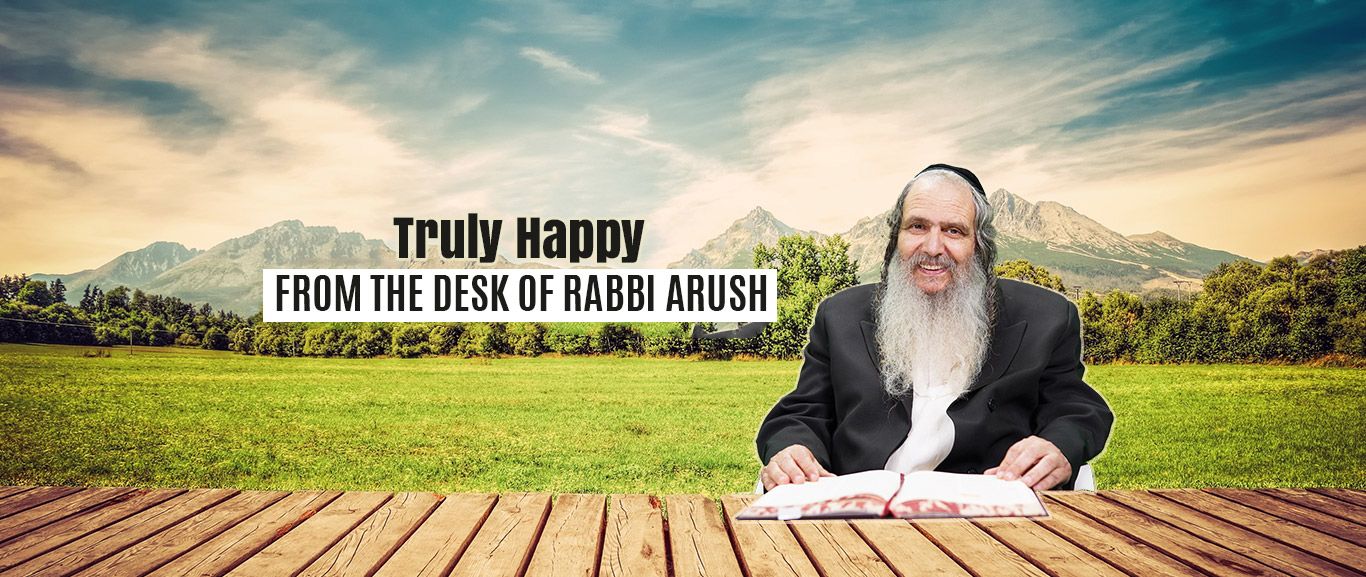
Truly Happy
In our current situation of uncertainty, confusion, and deep stress, how do we hold up? How do we maintain joy? What can encourage us in such a situation? Believing that everything comes from Hashem is not enough. Rabbi Arush explains what’s missing...

Translated from Rabbi Arush’s feature article in the weekly Chut shel Chessed newsletter. The articles focus on his main message: “Loving others as yourself” and emuna.
The Road to Happiness
The road to being happy in any situation includes the elimination of the midda (trait) of jealousy.
A person could have everything – but he won’t enjoy all the good he has and be truly happy only because of jealousy. And there are those who have nothing – but they aren’t jealous of anyone else, and they are happy and content with what they have – they are truly happy.
Jealousy is the greatest enemy of our happiness. And therefore, for the sake of our happiness, it is worthwhile to learn to live a life without jealousy. Everyone understands this. The question is: How do we do it? In this essay, we will give some good and true advice on how to live jealousy-free lives.
There are two kinds of jealousy. There is the simple jealousy, where a person is jealous of his friend’s success, whether material or spiritual; but there is a kind of jealousy that is much deeper and more dangerous, even frightening: When a person is jealous of love, when he is jealous of a person who is more loved than he is!
Jealousy as Unyielding as Sheol
Whoever has had a new baby born in the family can see how hard it is for the older sibling to accept the fact that his little brother/sister is “stealing” love and attention from him. All the tensions between brothers and sisters in a family stem mainly from the question of who is loved more. And this tension can accompany them all their lives and be behind all kinds of incidents, but all of them sit on those feelings of jealousy of their sibling who received more love.
Love and jealousy go hand in hand, as the passuk says: “Love is as powerful as death itself, and jealousy as unyielding as Sheol.”1 The Zohar Hakadosh says: Any love that is not accompanied by jealousy is not love.
And indeed, even he who is jealous of someone’s success doesn’t have a life and gets no satisfaction or joy or pleasure from what he has; he will always see only what he doesn’t have. But one who is jealous of love – that is not just lack of satisfaction and pleasure but rather a lack of a most basic necessity – such as air to breathe – lack of life. Therefore, the most difficult emotional problems are those that afflict someone who did not receive love in his childhood, or else was badly disappointed by people. Perhaps a close friend deserted him, or his parents got divorced, and such like.
Why is any damage to that love such a hard blow for the soul?
Because the soul needs love like it needs air to breathe; without love, it is as if the person has no air, no oxygen. He is being choked. No married person can stand a reality in which the spouse loves someone else more than him. If this happens, he’d rather die. His life feels ruined.
The Solution
In the book, The Garden of Emuna, we wrote that emuna (faith) is the answer and medicine and correction for all the bad traits that eat the person from within and ruin his life. We explained that we are not talking about the belief in the Creator of the World, but rather the complete emuna that Hashem is good and does good, in other words that Hashem yitbarach always loves me, and I will always have only good.
This emuna serves as a solution for both the jealousy based on someone else’s success and the jealousy of one who feels someone else is getting more love than he is. And all this is expressed in our song: “Hashem yitbarach always loves me and I will always have only good.” Let’s start from the deep kind of jealousy – jealousy of someone else’s love.
You Are Always Beloved
Hashem always loves me: When you feel Hashem’s love upon you every minute, you never lack love, and you are never competing with anyone else over it, because you are constantly feeling beloved. There is no such reality in which a person in this world is not beloved, but he must live this feeling of being beloved!
That is why Hashem created human beings, who need love and yearn for it – so that we will understand that our deep need for love will never be satisfied until we connect with the source of complete and definitive love – the Creator, Blessed Be He, who loves each and every creature, and especially each and every Jew, with a complete love.
Even someone who didn’t receive love in his childhood, and even someone who was badly disappointed by the people in his life – the deep-set knowledge, deep in the heart, that Hashem loves him constitutes his healing. This is the only way to heal, the only thing that can make up for the deep and yawning deficiency.
That is why the poet says: “My soul’s beloved, merciful father.”2 All the ills of the soul come from the tremendous thirst embedded in us for G-d’s love. That is why we plead: “Please G-d, heal her now, by showing her the beauty of Your radiance!”2 That is all the soul is seeking in this world: To feel the pleasure of Hashem’s love towards us, and that is the only truly healing thing for the soul.
So, we find that the complete emuna that Hashem loves us grants us the greatest love and heals us deeply.
And I will always have only good: That is the solution for the second kind of jealousy, being jealous of someone else’s success. When you know and believe that Hashem gives every person all the good in the world, and wants to give every person all the good in the world and even better – you will never feel any lack nor any jealousy, because you are completely connected to the true fount of abundance, the pure abundance that comes to a person and brings only blessing and good things and true happiness.
Sibling Jealousy
What we are going to write below is not talking about the holy brothers, the Tribes of Israel, whose spiritual level cannot be assessed properly, and we are forbidden even to question their acts and certainly we are not judging these extremely holy people. But when reading the psukim in this parasha [Parshat Vayeishev], a moral lesson arises, and we must learn it.
The simple understanding of the text describes the great jealousy stemming from Yaakov’s greater love for Yosef. “His brothers saw that it is he whom their father loved of all the brothers, and they hated him.”3 “His brothers were jealous of him.”4 The great tension between the brothers who were the sons of four different wives, some of them being sons of the proper wives, and some of them being sons of the maidservants (who were also married to Yaakov), the son of the favorite wife [Rachel] vs. the sons of the first wife [Leah] – was an immense tension that aroused great jealousy, causing the brothers to want to kill their brother! And this brought about a huge rift in the nation for generations afterwards.
Yosef befriended the sons of the maidservants, because he believed that Hashem loves every person to the same degree, as we wrote in the name of Yoram Abergel OBM, that Hashem loves every Jew even if he desecrates the Sabbath just like he loves Rabbi Shimon Bar Yochai. [Editor’s Note: See Descendants Just Like Them for the entire quotation from Betzur Yarum] And so, the sons of the maidservants, who felt less loved and appreciated, were attracted to Yosef who encouraged them and revealed to them how beautiful they are and how much Hashem loves them.
On the other hand, the holy brothers were afraid of losing their status, because they weren’t aware enough of Hashem’s love for them, so the special love that Yaakov bore Yosef was seen by them as an existential threat.
If you believe that Hashem loves you, you have no problem with everyone else succeeding and becoming kings and leaders and governors; you are not jealous of anyone.
The Happiness Test
We learn of the great power of the knowledge that Hashem loves me particularly from Yosef at the moment of his great test, when he is in the depths of the depths, a slave and then imprisoned, when in terms of the life’s circumstances everything is black and bleak, and he has all the reasons in the world to collapse spiritually and mentally.
How does he hold up? How does he maintain his joy? How does he continue to dance and be happy? What can encourage a person in such a situation? How can a human being live without love and without being treated like a human being? Even if he believes that everything comes from Hashem – it is not enough; indeed, he might get angry at Hashem, chalila.
The only encouragement that can provide support for Yosef in a place like that is the clear and definitive knowledge that Hashem loves him and that he will have only good!
And so, even when he has no love and no one is treating him like a human being at all – it doesn’t affect his joy at all, because he is living Hashem’s love for him so deeply every minute and in every situation.
And even in the darkest times and in his lowly state, he sees the future as being good because Hashem does only good for him and it will be better and even better. He doesn’t despair and doesn’t stop hoping and expecting good. He has no fear of the future; indeed, he is waiting for Hashem’s goodness and indeed receives it, as we say today, “big time”!
The knowledge that Hashem loves him not only saves him from depression and gives him great joy but also gives him success; everyone likes him, and he receives help from Above everywhere he is! This is true for every one of us, to live Hashem’s love and Hashem’s goodness – that is the greatest yeshua (salvation), the greatest healing of the soul, and that is the way to remain happy and joyful through all the travails of life, the ups and the downs, and to succeed in every place and every situation and to see Hashem’s yeshua soon, with one’s own eyes!
Editor’s Notes:
1 Shir HaShirim (Song of Songs) 8:6
2 Piyyut Yedid Nefesh (Beloved of the Soul) Liturgical poem by Rabbi Elazar Azikri
3 Bereishit (Genesis) 37:4
4 Bereishit (Genesis) 37:11


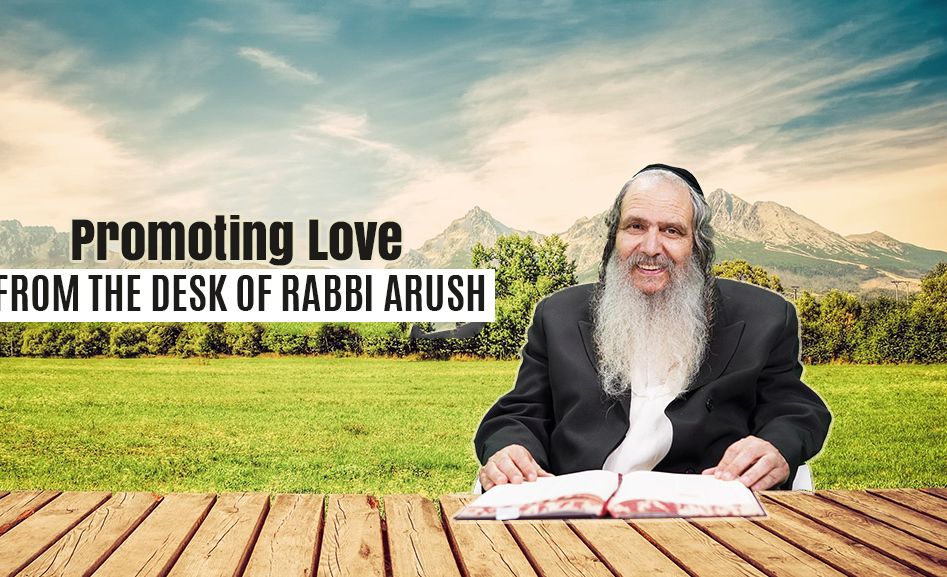
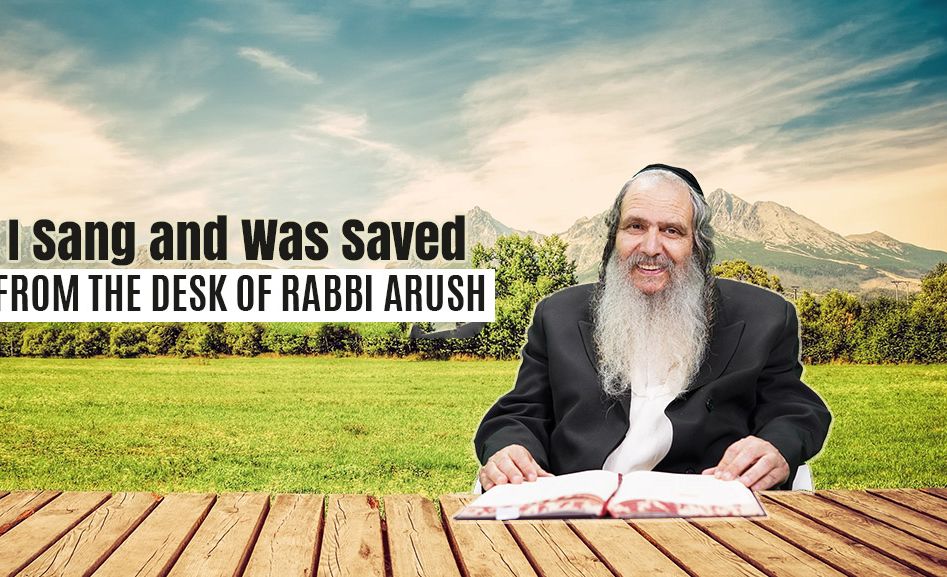
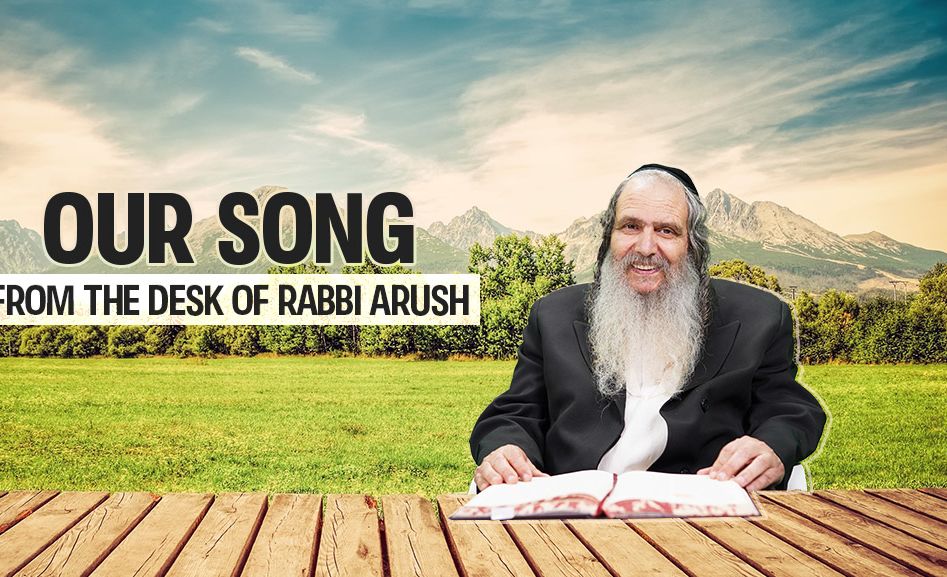




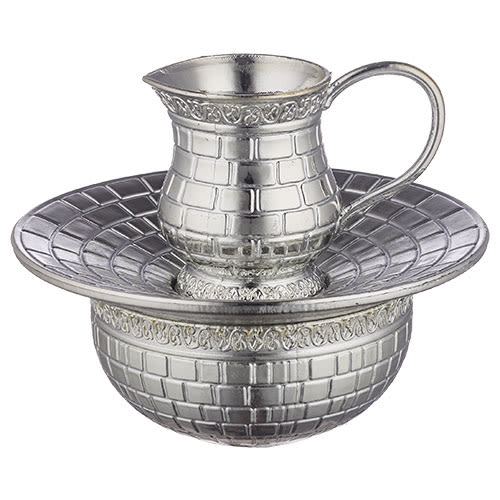

Tell us what you think!
Thank you for your comment!
It will be published after approval by the Editor.